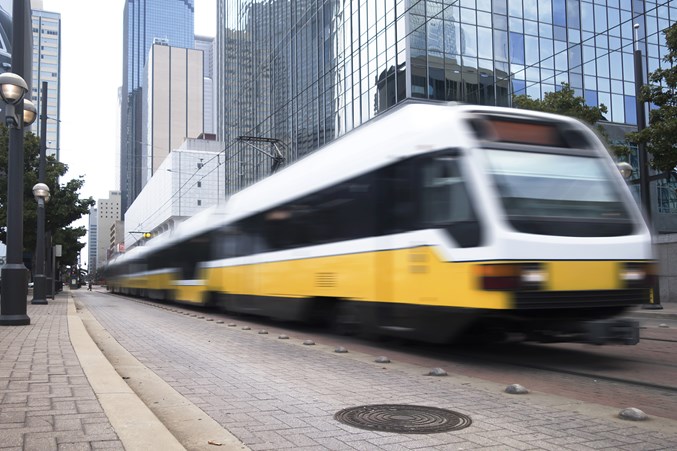In Texas, the stars at night are big and bright, the Alamo is never forgotten, and Texas’ state government wants nothing to do with public transit. State funding of transportation has always vastly favored highways and roads over buses and trains. Historically, federal government funding hasn’t fared much better, and the regional agency that directs federal transportation investment in North Texas has spent vastly more on the highway infrastructure that incentives sprawl over transit projects that amplify equitable mobility.
That leaves Texas’ urban metros in a bind. How do you provide the urban amenities that help cities thrive when state and federal policies work directly against urban interests? With regards to public transit, Austin and Houston hope to provide an answer by taking matters into their own hands and issuing billions in city bonds to fund new transportation projects.
In November, Houstonians will vote on a $3.5 billion bond which would go towards funding 75 miles of bus rapid transit, 16 miles of light rail, and $600 million in bus system enhancements like new stops and sidewalks. Austin plans to follow suit with a multi-billion-dollar bond next year, and it is finalizing a plan of how to invest that money in transit.
Historically, bond elections for transit have been politically risky. The Austin bond, for example, is the third time Capital Metro has tried to pass a bond to fund service improvements–the other attempts failed. But public enthusiasm for transit appears to be shifting. Polling in Houston shows that there is 60 percent support for their upcoming bond election, and representatives from both cities tell the Texas Tribune there is more public support for the need for public transit than there was 20 years ago.
As the Texas Tribune article points out, it has been 20 years since Dallas Area Rapid Transit held a bond election. To avoid the political conflict and unpredictability that can accompany bond elections, the Dallas regional transit agency has instead favored funding capital projects by collecting sales tax from member cities and applying for matching federal grants. But this approach faces its own set of political challenges. Sometimes the sources of funding dictate what kinds of projects are funded. For example, DART maxed-out its borrowing capacity in order to deliver the long-promised Cotton Belt line, a light rail extension that is politically important to keep suburban member cities from backing out of the transit agency, but which studies have shown will attract relatively few riders. The agency also has projects in line for federal grants—including the significant D2 downtown subway alignment—but the FTA funding has slowed under Trump administration.
The question remains: what is the best way for Texas cities to fund transit? As more people in Dallas voice demands for reliable, rider-centric transit, some elected officials—most notably former council member Scott Griggs—have suggested that the city should pull out of DART altogether and use its sales tax contribution to the agency to fund its own urban transit network. At the very least, the city could, like Houston and Austin, hold its own municipal bond election to fund investments in public transit.
But this seems unsustainable, and it doesn’t address the real underlying challenges that make funding and planning effective public transit possible in the first place. To start, the city of Dallas has plenty of unfunded infrastructure liabilities to deal with—like billions in outstanding road maintenance, for example—without taking on the burden of funding public transit improvements that should be provided through the billions of dollars the city has contributed to DART through sales tax over the decades.
The real reason DART has failed to build out a reliable public transit system is political, not economic. Since its founding in the 1980s, the agency has measured its own success not by increasing ridership or reliability but by developing a regional-minded light rail network. Similarly, the reason why transit agencies struggle to find adequate funding for improvements and operations is because both state and federal governments have vastly over-funded car-centric transportation infrastructure over and against public transit projects. To truly change the way transit works in Texas, political assumptions and attitudes around these kinds of transportation policies must change.
Perhaps the rise in public support in Houston and Austin for funding transit through bonds is an indication that, even in Texas, the politics are starting to shift.






